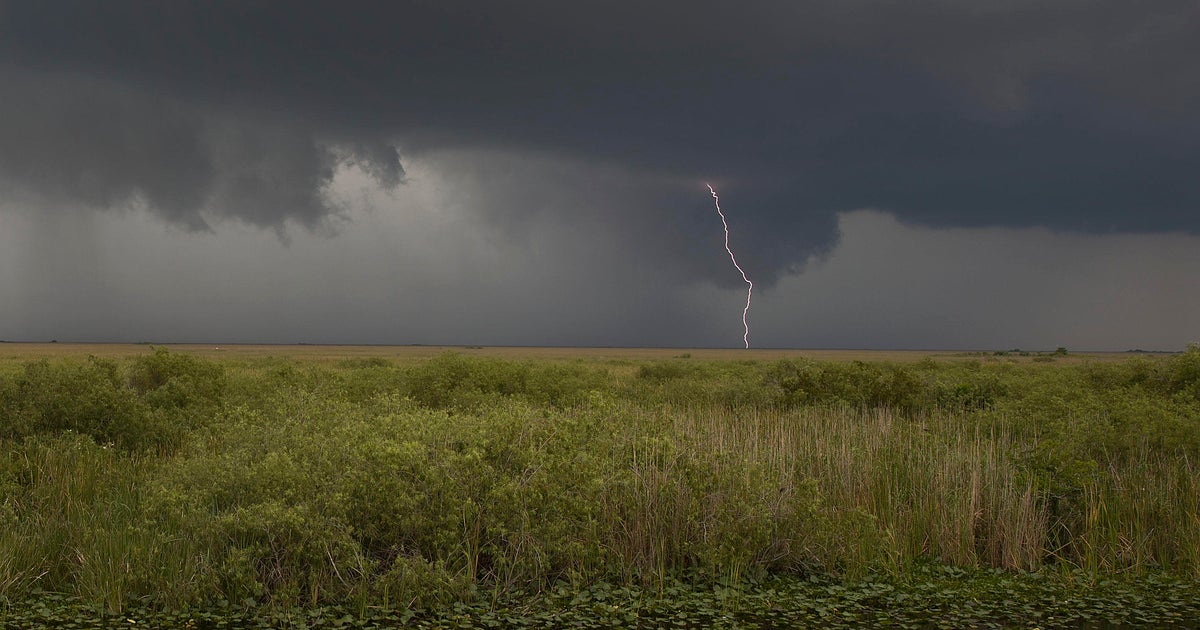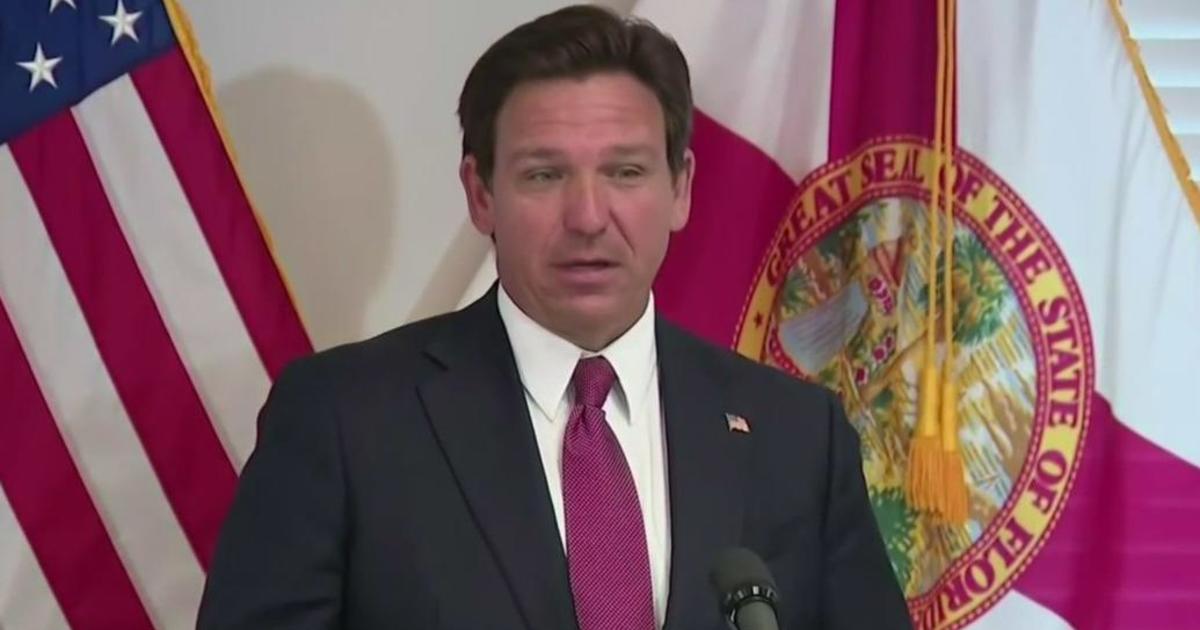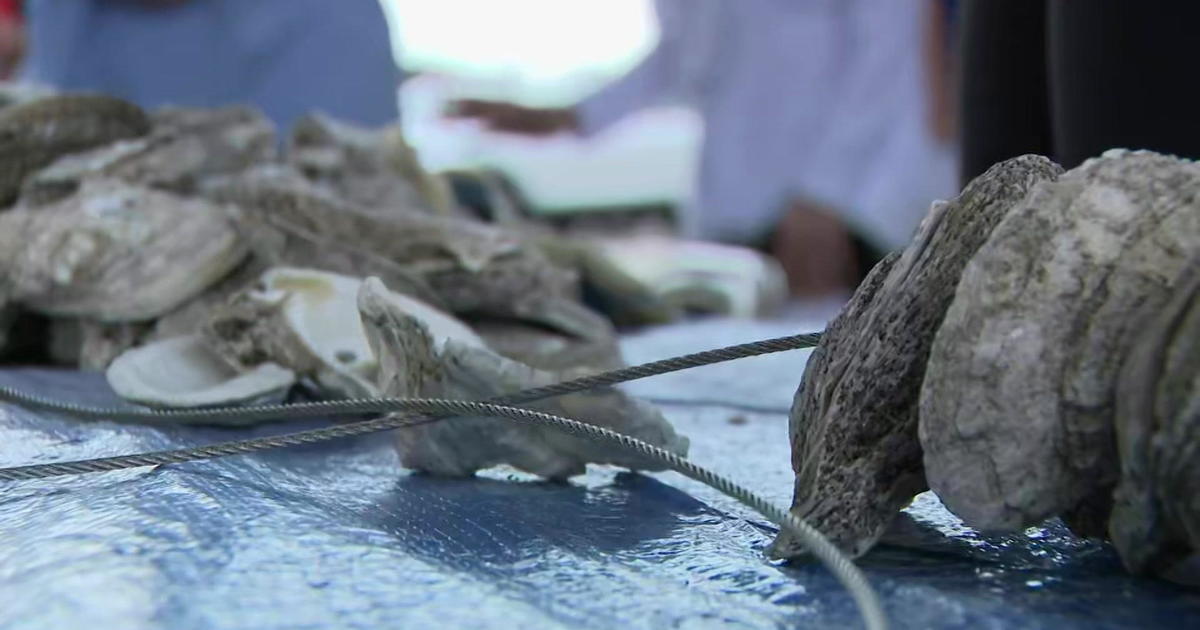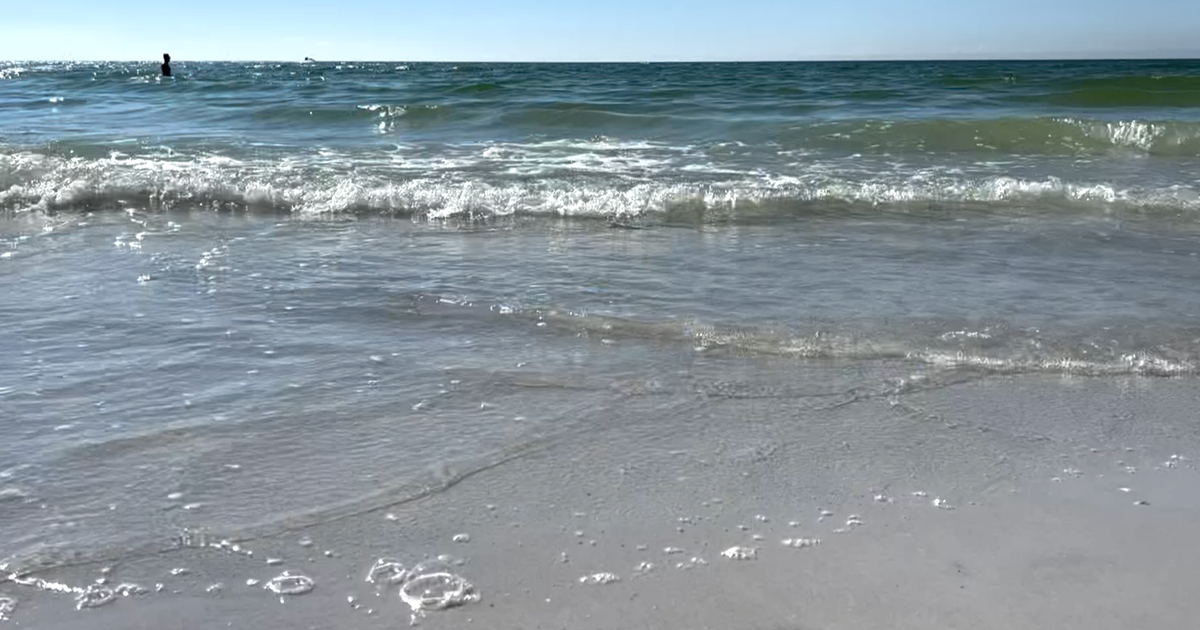Statewide Water Planning Is Goal Of Next House Speaker
TALLAHASSEE (CBSMiami/NSF) – Florida may be surrounded by water, but the state has vast water problems that need to be addressed. That's exactly what the next House speaker wants to do.
As the Senate pursues an ambitious $220 million plan to redirect water and reduce pollutants in South Florida, the next House speaker, Rep. Steve Crisafulli, R-Merritt Island, wants lawmakers to factor in water issues faced by the agriculture industry and drinking-water sources, as well as problems facing Florida's freshwater springs, the Apalachicola River region in Florida's Panhandle and the northern Indian River Lagoon, as they prepare to allocate money for water-resource projects in next year's budget.
"The water issues need to be approached in a comprehensive fashion," Crisafulli said Monday. "It's important we don't get too laser-focused on one region of the state, but look at it from the standpoint of the overall needs of the state."
The directive from Crisafulli, who is in line to become House speaker in November 2014, sets up expected political horse-trading over funding for water issues between the House and Senate at a time when the Legislature has the prospects of a budget surplus entering the session.
The Senate plan was crafted by Sen. Joe Negron, R-Stuart, who chairs the budget-writing Appropriations Committee.
Negron's plan was initially conceived with a focus on improving water quality in the St. Lucie estuary, which during the summer was inundated with nutrient-heavy waters released from nearby Lake Okeechobee under the direction of the U.S. Army Corps of Engineers.
As the plan advanced out of Negron's Select Committee on Indian River Lagoon and Lake Okeechobee Basin, it included proposals by Gov. Rick Scott to increase the flow of water to the south, and by Senate Majority Leader Lizbeth Benacquisto, R-Ft. Myers, to assist the Caloosahatchee Estuary on the west side of the state.
"It's exciting to see state leaders competing over who will do the most for the environment," said Eric Draper, executive director of Audubon of Florida. "This is something we haven't seen in a long time."
Draper, who has complimented Negron for being able to quickly put together a plan, agreed Monday with most of the general approach pitched by Crisafulli.
Negron said doesn't believe a proposed statewide approach will impact the Lake Okeechobee and Everglades improvement plan.
"The more focus we have on water policies the better," Negron said. "We can do more than one thing at one time."
Negron noted that more than $10 million was budgeted for freshwater springs in the 2013 session and he expects more will be done next year. Also, the South Florida plan includes proposals to clean water that enters the lake from the Orlando region and $20 million to remove muck from the northern Indian River Lagoon that stretches into Crisafulli's area of the Space Coast.
Crisafulli's general proposal is intended to "reject a limited parochial view" and provide flexible policies that water managers can adapt to rapidly changing circumstances that range from the pending impact of hurricanes to decisions of neighboring states on Florida's water supply.
Crisafulli said putting a premium on water issues that benefit the state will be a priority of his term as House speaker.
In an opinion piece for the Orlando Sentinel on Sunday, Crisafulli wrote that "focusing on one community at a time in a piecemeal approach can lead to new problems down the road."
His focus will be primarily getting "tangible" projects in place rather than instituting new policies.
Crisafulli's comments echo sentiments from Agriculture Commissioner Adam Putnam that lawmakers need to remember that South Florida isn't the only part of the state where water quality and quantity have become dire issues.
"There is an extraordinary bias to the south at the expense of the springs and Apalachicola Bay," Putnam told reporters on Nov. 18.
Florida has filed a federal lawsuit against Georgia about a shortage of freshwater flowing into Apalachicola Bay. Florida argues that heavy water consumption in the metro Atlanta area has reduced downstream flows into the bay, endangering Apalachicola's oyster industry.
The budget proposal from Putnam's department for the 2014 session includes $10 million to address nutrient reduction practices and water retention efforts in the Lake Okeechobee watershed, $8.2 million for best management practices in the northern Everglades, and $5.2 million to reduce agricultural nutrients from reaching the state's northern freshwater springs.
The Department of Environmental Protection has included in its budget proposals $75 million that Gov. Rick Scott proposed for Everglades restoration efforts, $40 million for environmental land acquisition, and $15 million for springs restoration, up from the $10 million designated during the 2013 session.
The proposals are being considered by Scott, who will offer a budget plan before the 2014 legislative session.
The governor has a couple of items among Negron's list, including $90 million that would be spread over three years to bridge a 2.6-mile section of the Tamiami Trail west of Miami.
Other provisions in the Senate plan include $40 million to speed construction of the state's portion of a C-44 reservoir and stormwater treatment area for the Indian River Lagoon-South Restoration Project; $32 million for projects tied to ensuring that all surface-water discharges into the Everglades Protection Area meet water quality standards; and a request for the Army Corps to give DEP authority to regulate releases when the risk of dike failure around Lake Okeechobee is less than 10 percent.
"The News Service of Florida's Jim Turner contributed to this report."



